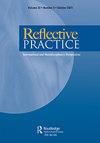Promoting self-directed learning skills in a first-year problem-based university program with a self-development intervention
IF 1.6
Q2 EDUCATION & EDUCATIONAL RESEARCH
引用次数: 0
Abstract
This study investigated whether an intervention aimed at self-development would stimulate the self-directed learning skills of university students within a problem-based learning program. In a randomized controlled trial study, 408 first-year psychology students were randomly assigned to an experimental or control condition. During their courses, all students received the problem-based program, including feedback from their tutors on professional behaviour and study skills. Students in the experimental group also received an extra self-development intervention including two sessions with a mentor, during which students were asked to reflect on personal learning goals. At the beginning and end of the year, students’ self-directed learning skills were measured with two questionnaires. Over the year, students in the experimental group showed a larger increase in their self-control, in their ability to monitor improvement during task performance, and in their ability to evaluate process and outcome after task execution. Also, their willingness to invest study effort had not decreased, in contrast to students in the control group. These findings show that a relatively simple intervention making students reflect more on their self-development can have a significant effect on a number of relevant self-directed learning skills, even when added to a problem-based learning university program that is already focused on stimulating self-directed learning.通过自我发展干预,在一年级问题导向型大学课程中促进自主学习技能
本研究旨在探讨以自我发展为目的的干预是否会刺激大学生在基于问题的学习计划中的自主学习技能。在一项随机对照试验研究中,408名一年级心理学学生被随机分配到实验或控制条件下。在他们的课程中,所有学生都接受了基于问题的计划,包括他们的导师对专业行为和学习技巧的反馈。实验组的学生还接受了额外的自我发展干预,包括与导师进行的两次会议,在此期间,学生被要求反思个人学习目标。在学年开始和结束时,用两份问卷测量学生的自主学习能力。一年来,实验组的学生在自我控制能力、任务执行过程中监控进步的能力以及任务执行后评估过程和结果的能力方面都有了更大的提高。此外,与对照组的学生相比,他们投入学习努力的意愿并没有减少。这些发现表明,一个相对简单的干预,让学生更多地反思他们的自我发展,可以对一些相关的自主学习技能产生重大影响,即使是在已经专注于刺激自主学习的基于问题的学习大学项目中。
本文章由计算机程序翻译,如有差异,请以英文原文为准。
求助全文
约1分钟内获得全文
求助全文

 求助内容:
求助内容: 应助结果提醒方式:
应助结果提醒方式:


